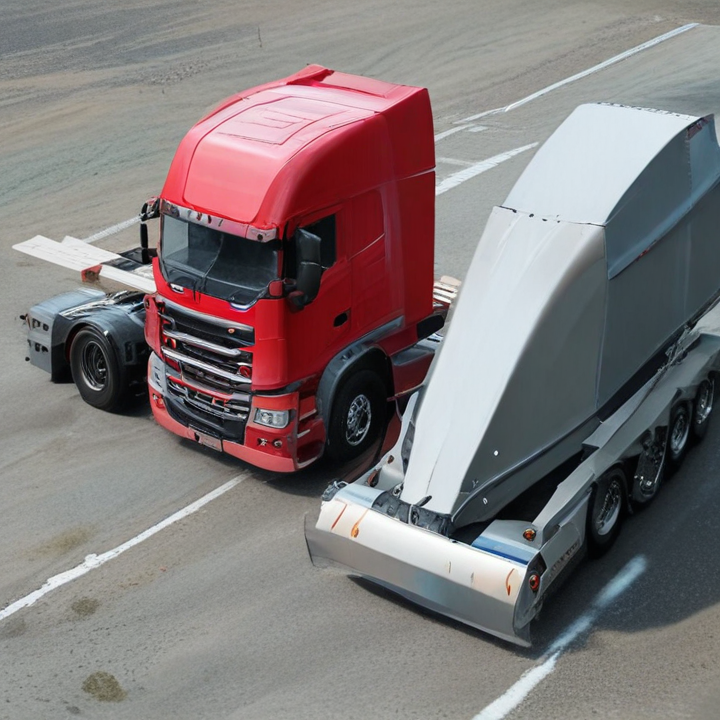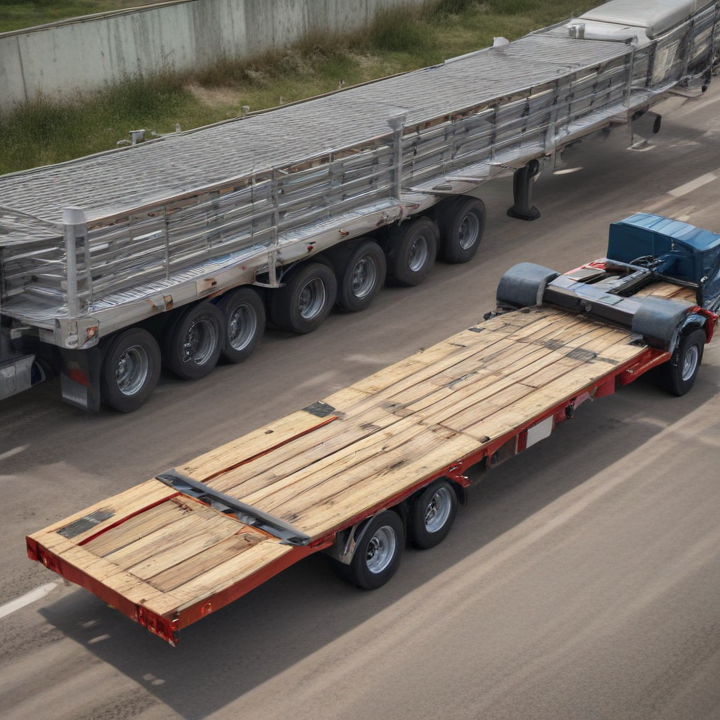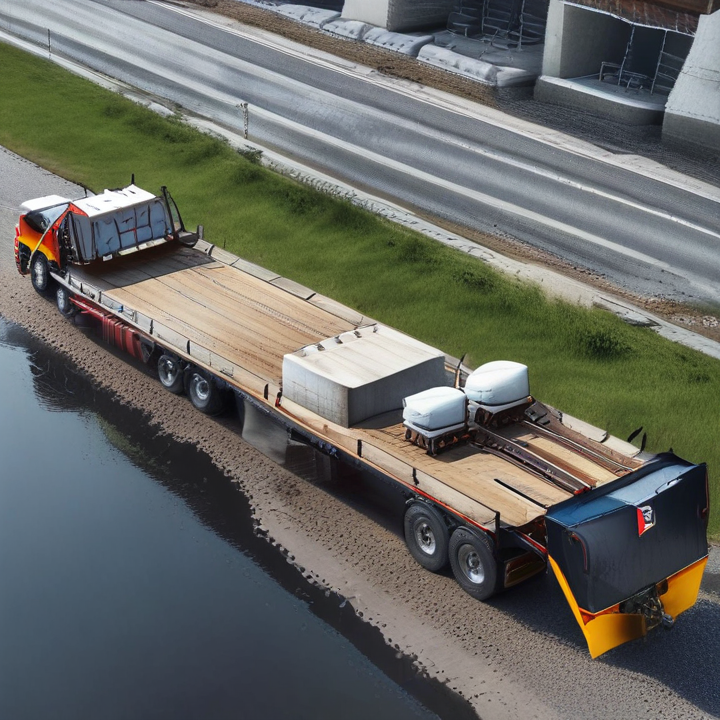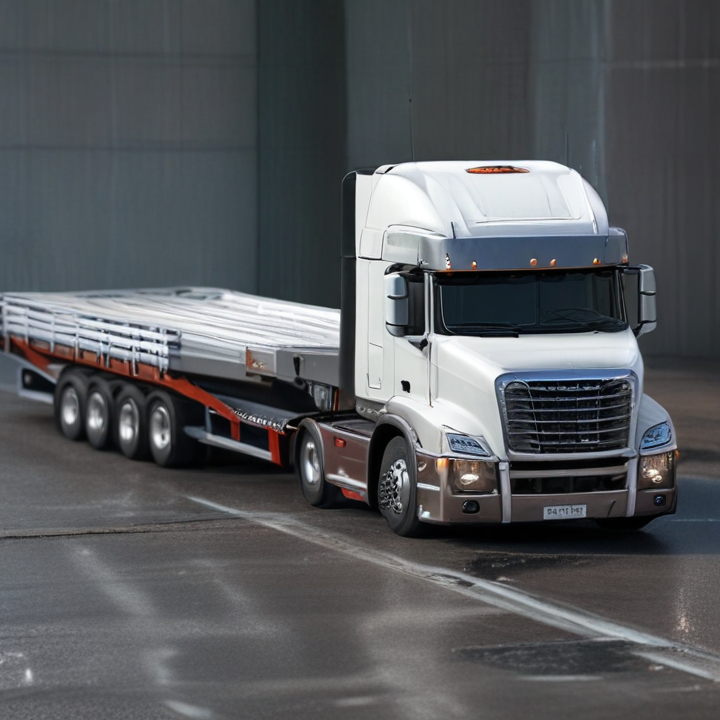semi boat trailer Safety Certifications
Ensuring the safety of a semi boat trailer involves adherence to various certifications and standards. The primary certifications for these trailers encompass both national and international benchmarks, focusing on construction, performance, and operational safety.
In the United States, the Department of Transportation (DOT) sets comprehensive guidelines for trailers, including those intended for boats. These standards address structural integrity, braking systems, lighting, and reflective devices. Compliance with DOT regulations ensures that the trailer is safe for highway transportation, reducing the risk of accidents and enhancing visibility.
The National Association of Trailer Manufacturers (NATM) provides another critical certification. By adhering to the NATM Compliance Verification Program, manufacturers demonstrate that they meet stringent safety and quality standards. This program covers various aspects such as frame strength, electrical systems, and hitch components. Trailers certified by NATM are regularly inspected for safety compliance.
Internationally, the International Organization for Standardization (ISO) provides relevant benchmarks. ISO 9001 certification signifies that the manufacturing process of the trailer meets high-quality management standards, ensuring consistent product quality and safety. Additionally, the ISO/TS 16949 standard applies to the design and development of trailers, particularly focusing on automotive-related products.
Manufacturers may also undergo European Union certification to meet CE marking requirements, which assess various safety, health, and environmental protection standards.
In summary, safety certifications for semi boat trailers are vital for ensuring they meet established safety, quality, and performance standards. Compliance with DOT, NATM, ISO, and CE marking guidelines guarantees that these trailers are roadworthy and reliable, providing peace of mind to both manufacturers and users.
List Reference Technical Parameters of “semi boat trailer”
A “semi-boat trailer” is a specialized type of trailer designed specifically for transporting boats. It offers a balance between the convenience of personal boat trailers and the heavy-duty capabilities of commercial transport trailers. Below are the key technical parameters to consider:
1. Gross Vehicle Weight Rating (GVWR):
– Indicates the maximum total weight of the trailer including cargo. Typical GVWR ranges from 10,000 to 30,000 pounds.
2. Trailer Length:
– Varies depending on the boat sizes it is designed to carry. Common lengths range from 20 to 40 feet.
3. Axle Configuration:
– Can be single, tandem, or tri-axle to support different weight capacities. Tandem and tri-axle configurations are usually preferred for larger boats.
4. Material:
– Aluminum and galvanized steel are commonly used due to their durability and resistance to corrosion.
5. Bunks vs Rollers:
– Bunks provide more support and are typically padded to protect the boat, whereas rollers make it easier to launch and retrieve boats but may provide less uniform support.
6. Braking System:
– Includes either electric or hydraulic surge brakes. Higher weight capacities typically require hydraulic brakes for better stopping power.
7. Suspension:
– Leaf spring or torsion axle suspension. Leaf springs are durable and cost-effective, while torsion axles offer a smoother ride.
8. Winch:
– Manual or electric winch is used to pull the boat onto the trailer. Electric winches are preferable for larger boats.
9. Light System:
– Fully submersible LED lights ensure visibility and safety during nighttime transport and launching into water.
10. Compliance:
– Must comply with local and national regulations regarding trailer dimensions, weight limits, and safety requirements.
11. Tow Hitch Type: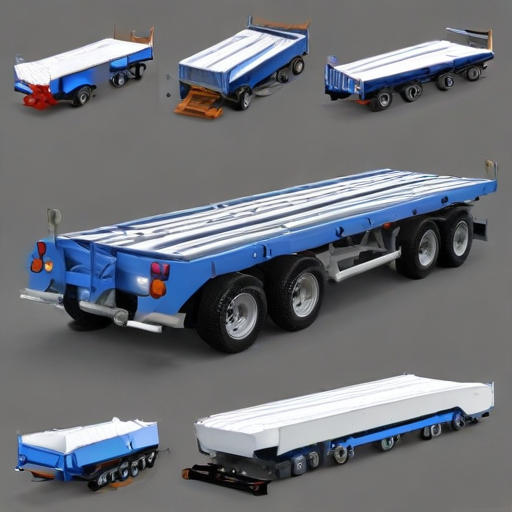
List Product features of “semi boat trailer”
Certainly! Below are the key features of a “semi boat trailer”:
1. Heavy-Duty Construction: Semi boat trailers are designed using robust materials such as galvanized steel or aluminum to withstand heavy loads and resist corrosion.
2. High Load Capacity: Built to transport large boats, these trailers can handle significant weight capacities, ensuring safe and secure transportation.
3. Adjustable Components: Often equipped with adjustable bunks or rollers to accommodate boats of different sizes and shapes, providing a custom fit for each boat.
4. Torsion Axle Suspension: Many semi boat trailers utilize torsion axle suspension for improved handling, reduced vibration, and a smoother ride.
5. Hydraulic Brakes: Enhanced braking systems, often including hydraulic surge brakes, ensure reliable stopping power even when towing heavy loads.
6. LED Lighting System: High-visibility LED lights offer better durability and improved safety on the road by ensuring the trailer is seen in various driving conditions.
7. Winch Stand: A sturdy winch stand, generally adjustable, makes it easier to load and unload boats, providing extra support during these processes.
8. Radial Tires: Equipped with heavy-duty radial tires that provide better traction, greater load capacity, and longer wear compared to regular tires.
9. Corrosion-Resistant Finish: Coatings such as hot-dip galvanizing or marine-grade aluminum provide superior corrosion resistance, especially important in saltwater environments.
10. Submersible Lights: Water-resistant lighting systems ensure that electrical components remain functional after launching or retrieving the boat from the water.
11. Customizable Options: Many manufacturers offer customization options such as additional storage, spare tire mounts, or tailored color finishes to meet specific needs.
12. Safety Chains and Tie-Down Points: Reinforced safety chains and multiple tie-down points ensure the boat remains securely fastened during transit.
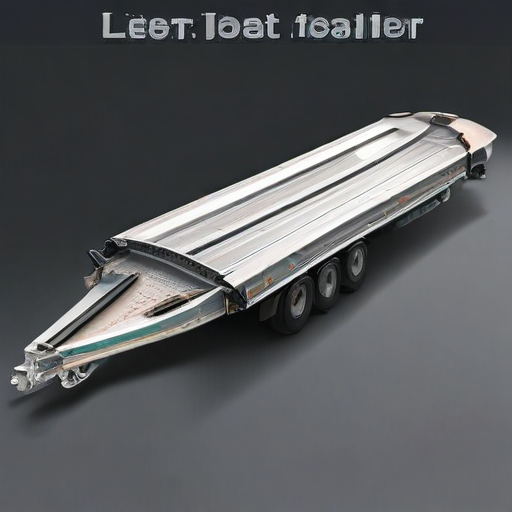
“semi boat trailer” Warranty and Support
Warranty and Support for Semi Boat Trailers
At [Your Brand], we are committed to ensuring complete satisfaction with our semi boat trailers. Each trailer is built with precision and highest quality materials to provide you with peace of mind. Our warranty and support services are designed to offer you comprehensive coverage and assistance whenever needed.
Warranty Coverage:
Our semi boat trailers come with a limited warranty that covers any manufacturing defects in materials and workmanship for a period of 3 years from the date of purchase. This includes structural components such as the frame, axles, and cross members. We also offer a 1-year warranty on electrical components, lights, and paint finishes.
For any additional components or accessories purchased with the trailer, warranties may vary and are covered according to the manufacturer’s own terms and conditions.
What is Not Covered:
– Normal wear and tear, including tires and brake linings.
– Damage caused by improper use, overloading, or unauthorized modifications.
– Corrosion due to lack of maintenance or exposure to harsh environments.
– Incidental or consequential damages.
Support Services:
Our dedicated customer support team is available to assist you with any questions or issues you may encounter. We offer:
1. 24/7 Customer Service Hotline: Get immediate assistance for any urgent issues or troubleshooting.
2. Online Support Portal: Access detailed FAQs, maintenance guides, and tutorial videos to help you maintain your trailer.
3. Authorized Service Centers: Find a network of certified technicians nationwide to perform repairs and maintenance covered under warranty.
How to Claim Warranty:
To file a warranty claim, please contact our customer support team via email or phone. Provide your trailer’s serial number, proof of purchase, and a detailed description of the issue. We will guide you through the process and coordinate with the nearest authorized service center if repairs are needed.
We stand by our products and aim to provide exceptional support to ensure your boating adventures stay smooth and stress-free.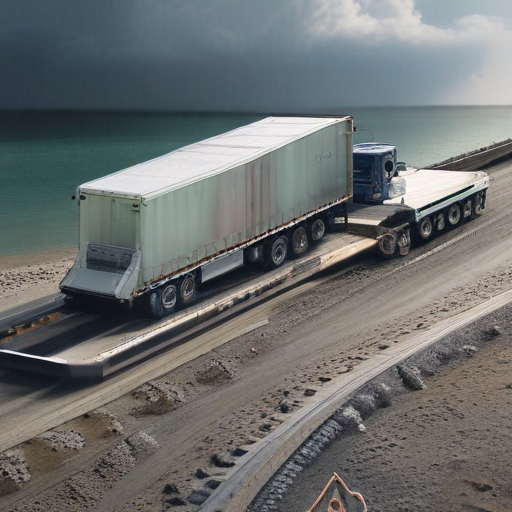
List “semi boat trailer” FAQ
Certainly! Here are some frequently asked questions (FAQ) regarding semi boat trailers:
1. What is a semi boat trailer?
– A semi boat trailer is a type of trailer designed to haul boats using a semi-truck. These trailers are typically larger and more robust than standard boat trailers, making them suitable for transporting large boats.
2. What types of boats can a semi boat trailer haul?
– Semi boat trailers can haul various types of boats, including yachts, large fishing boats, and sailboats. The specific capacity depends on the trailer’s design and weight rating.
3. How do I choose the right semi boat trailer for my boat?
– Consider the boat’s size, weight, type, and hull shape. Ensure the trailer has the appropriate weight capacity, length, and support mechanisms like bunks or rollers to safely transport your boat.
4. Do I need a special license to tow a semi boat trailer?
– Yes, towing a semi boat trailer typically requires a commercial driver’s license (CDL) due to the size and weight of the load.
5. Can I rent a semi boat trailer?
– Yes, many companies offer rental services for semi boat trailers. Ensure the rental includes proper insurance and meets your specific hauling requirements.
6. What maintenance does a semi boat trailer need?
– Regular maintenance includes checking tire pressure, inspecting brakes, ensuring lights are operational, and examining the trailer’s frame and support structures for wear and tear.
7. Are there laws and regulations for towing a semi boat trailer?
– Yes, there are specific regulations regarding load size, weight limits, and permits required for oversized loads. It’s crucial to check federal and state regulations before towing.
8. How do I secure my boat to the trailer?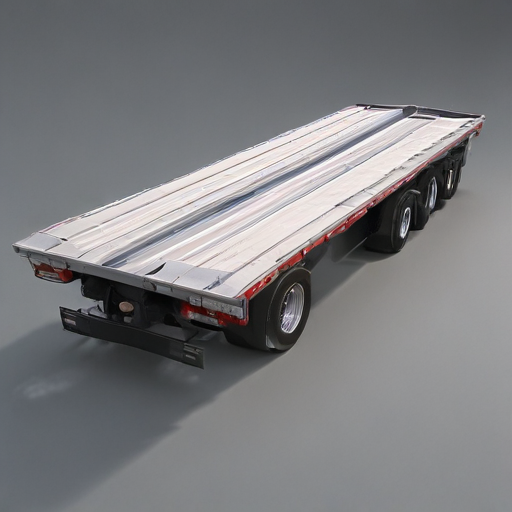
Top 10 FAQ with answer about semi boat trailer for Buyer Sourcing from China
Certainly! Here are the top 10 frequently asked questions (FAQ) with answers about sourcing semi-boat trailers from China, distilled into concise guidance.
1. What is a semi-boat trailer?
A semi-boat trailer is a type of trailer designed to transport boats. It typically attaches to a semi-truck for hauling larger vessels, offering robust construction for heavy-duty use.
2. What materials are commonly used for these trailers?
Aluminum and galvanized steel are the most common materials, providing durability and resistance to corrosion, essential for marine environments.
3. What should I consider regarding the weight capacity?
Ensure the trailer can handle the boat’s weight, including additional gear. Verify the Gross Vehicle Weight Rating (GVWR) to match your boat’s specifications.
4. How do I verify the quality of Chinese manufacturers?
Check for ISO certifications, request sample products, visit the manufacturing site if possible, and seek out reviews or references from other international buyers.
5. What is the typical lead time for manufacturing?
Lead times can vary, but typically range from 30 to 60 days. Custom designs may require more time. Confirm timelines with your supplier early in the process.
6. Are there standard sizes, or can I request custom dimensions?
Both options are available. Many manufacturers offer standard sizes, but customization is generally possible to meet specific requirements.
7. What should I look for in terms of warranties?
Look for warranties that cover structural issues, rust, and workmanship. A standard period is between 1 to 3 years, but terms may vary by manufacturer.
8. How can I handle shipping logistics?
Work with a freight forwarder experienced in handling large and heavy cargo. They can assist with customs, documentation, and delivery from China to your location.

